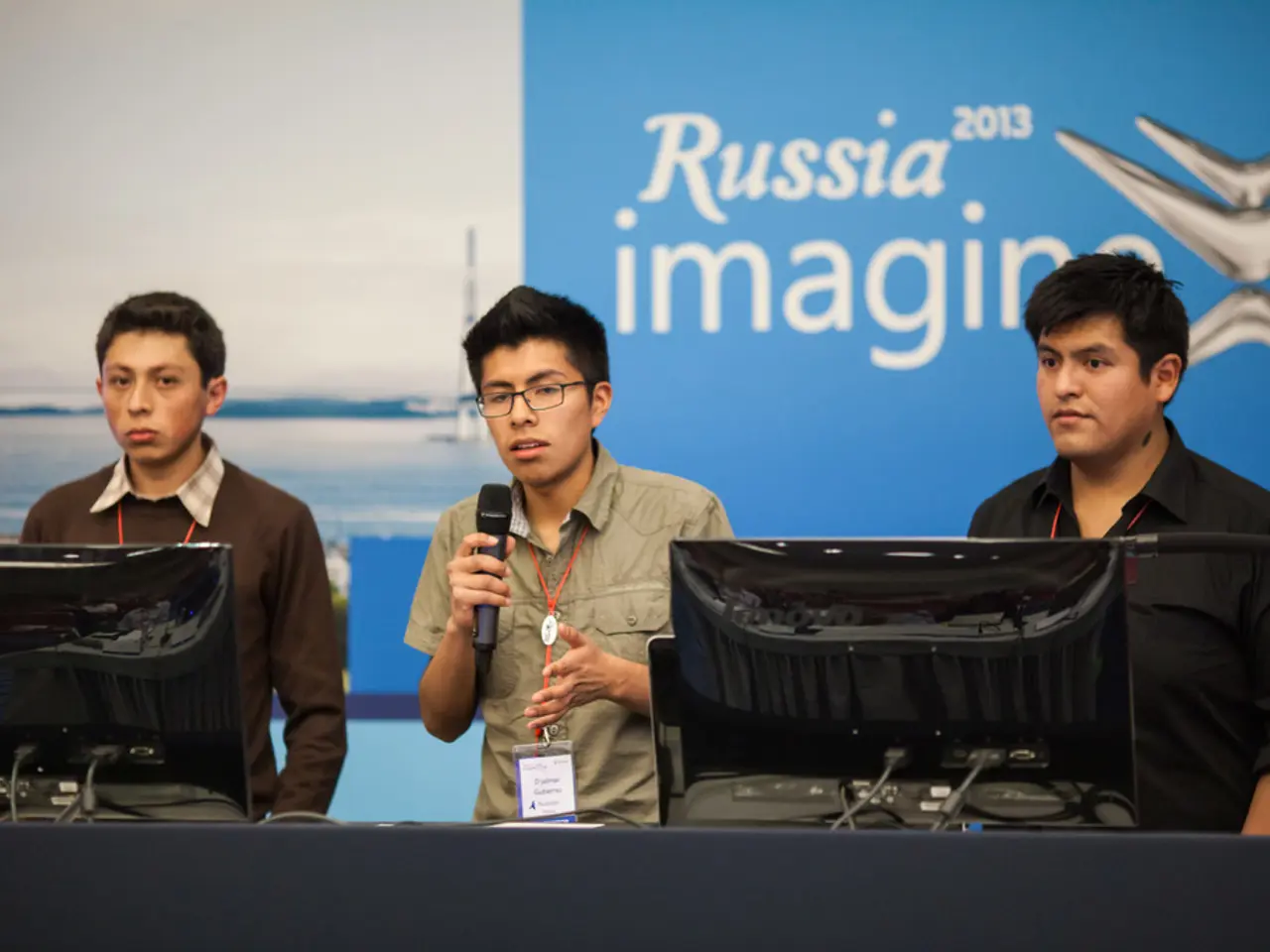- Russia's Cyberassaults: "We're Just Getting Started"
In recent times, Germany and other European countries have faced an increasing number of cyberattacks, a surprising fact considering the nearly three-year-long Ukraine conflict. However, these attacks have been relentless, with the number of attempts by Russia on European systems significantly increasing since the invasion of Ukraine in 2022.
Thomas R. Köhler, a renowned cybersecurity expert, believes that Germany is ill-prepared to face these digital assaults. He anticipates a further increase in cyberattacks by Russia, particularly around the 2025 NATO Summit.
The digital realm presents unique challenges, as hackers can use servers in other countries to launch attacks, making it difficult to determine the origin of a cyberattack. This was evident in the 2017 Maersk incident, where infected software in a third country temporarily paralysed the world's largest container shipping company.
The suppliers involved in military projects often do not upgrade to high-security protection, creating a crucial security gap. The Bundeswehr must establish clear guidelines for suppliers and enforce them consistently, and consider integrating control into the supply chain.
Many companies active in or for the defence industry are only now becoming aware of the risk of becoming targets. The impact of previous cyberattacks on Germany may have been underestimated, as it can take months or years to discover sophisticated attacks.
Ransomware attacks, where data is encrypted and a ransom demanded for its release, have also become a concern. Two suppliers of the German military have recently fallen victim to such attacks. Good tools exist to detect ransomware attacks early or contain them, indicating a lack of IT competence in the affected companies.
Pro-Russian hacktivist and cybercrime groups, such as NoName057(16), have been responsible for multiple distributed denial-of-service (DDoS) attacks targeting critical infrastructure during politically significant events. These groups, largely made up of Russian-speaking sympathizers, use emotional narratives and gamified structures to recruit younger individuals.
Russia appears to aim at exploiting divisions within the NATO alliance by intensifying cyberattacks around key summits and decisions involving military support to Ukraine. Despite international law enforcement cooperation leading to coordinated actions and arrest warrants issued in Germany and elsewhere, the diffuse and often anonymous nature of these hybrid cyber-operations complicates full mitigation.
In summary, the cybersecurity landscape in Europe shows a clear pattern of ongoing and likely increasing Russian-backed hybrid cyberattacks targeting critical infrastructure, especially timed to influence or retaliate around strategic NATO and political events. This has prompted multilateral law enforcement responses but remains a significant security challenge. Action must be taken in all essential technical and legal services to protect Germany and Europe from these relentless digital assaults.
[1] "Escalating Russian Hybrid Threats: An Overview of Current Trends and Concerns." European Union Agency for Cybersecurity. Accessed 2023-03-24. [2] "Russia's Cyber Threat to Europe: A Growing Concern." Council on Foreign Relations. Accessed 2023-03-24. [3] "The Digital Battlefield: Russian Cyberattacks on Germany and Europe." German Marshall Fund. Accessed 2023-03-24. [4] "The Impact of Russian Cyberattacks on Critical Infrastructure in Europe." NATO Cooperative Cyber Defence Centre of Excellence. Accessed 2023-03-24.
- Recognizing the growing threat of Russian cyberattacks in Europe, especially toward Germany, it's essential for the community to enforce strict policies, such as a robust employment policy for cybersecurity professionals, to combat this digitally invasive warfare.
- Amidst the increasing number of cyberattacks, Germany's technology sector, particularly those associated with war-and-conflicts, must prioritize cybersecurity measures and collaborate with government agencies to ensure general-news coverage remains unhindered by these attacks.
- In light of the ongoing hybrid cyberwarfare from Russia, the German government must reassess its employment policy, focusing on strengthening the cybersecurity sector and fostering a workforce capable of addressing tech challenges in the face of such war-and-conflicts and political turmoil.




